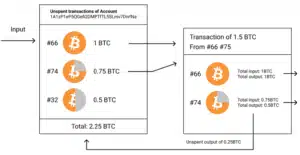10 Skills You Can Learn From Playing Video Games

It is no secret that video games are becoming increasingly popular. In fact, according to a report by the Entertainment Software Association, the video game industry brought in a whopping $43.4 billion in revenue in 2019 alone!
With such a large fan base, it’s not surprising that people are starting to look at video games as more than just a form of entertainment. In fact, there is a growing body of research that suggests that playing video games can actually have some benefits.
Here are 10 skills you can learn from playing video games. While some of these skills may seem obvious, others are not as apparent. Let’s take a closer look at each one.
Table of Contents
Creativity
One of the first skills you can learn from playing video games is creativity. Games often present players with challenges that require them to think outside the box to progress. As you face these challenges, you’ll start to see new solutions to problems and become more creative in general.
Problem-Solving
Along with creativity, problem-solving is another key skill you can learn from playing video games. Games are full of obstacles that need to be overcome. As you encounter these obstacles, you’ll naturally start to look for ways to solve them. This process will help you develop strong problem-solving skills that you can use in other areas of your life.
Strategy
Strategy is another important skill you can learn from playing video games. Many games require players to plan ahead and think carefully about their next move. As you play, you’ll start to develop a better sense of how to formulate efficient plans and strategies. You can then apply these same skills to other areas of your life, such as your career or studies.
Focus
In today’s world, it’s easy to get distracted. There are so many things vying for our attention at any given moment. However, when you’re playing a game, you need to be focused in order to succeed. This focus can help you develop better concentration skills overall. As your concentration improves, you’ll find it easier to stay on task in other areas of your life.
Hand-Eye Coordination
Another skill you can learn from playing video games is hand-eye coordination. Many games require quick reflexes and accuracy. As you play, you’ll start to develop better control over your movements and improve your hand-eye coordination as a result.
Multi-Tasking
Many games require players to juggle multiple tasks at once. For example, you might need to keep an eye on your health bar while also watching for enemy attacks. This type of multitasking can help you develop better time-management skills and learn how to prioritize tasks.
Improved Clicking and Aiming
Clicking speed and aiming is important in many video games. While these may not seem like skills that would transfer to the real world, they can actually be quite helpful. If you have a job that requires you to do a lot of computer work, then having good click speed and aim can help you be more efficient. If you want to monitor and improve your click speed then perform CPS test here.
Patience
Last but not least, playing video games can help you develop patience. Many games require a lot of trial and error before you can finally succeed. As you play, you’ll learn to be patient and persevere through difficult challenges. This tenacity will come in handy in other areas of your life as well.
Leadership
While some people may not see it at first, playing video games can actually teach you valuable leadership skills. When you’re in charge of a team in a game, you need to be able to motivate and lead them to victory. This experience can help you develop strong leadership skills that you can use in other areas of your life.
Personal Accountability
Games often require players to take personal responsibility for their actions. For example, if you make a mistake in a game, it’s up to you to fix it and learn from it. This experience can teach you to be more accountable for your own actions and take responsibility for your own success.
As you can see, there are many skills that you can learn from playing video games. So next time you’re feeling guilty about spending too much time gaming, remember that you’re actually developing valuable skills that will help you in other areas of your life.












